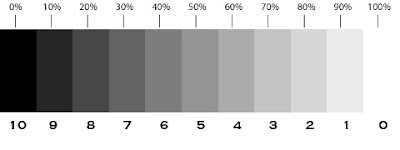Black Lives Matter, but How Do We Decide Who is Black?
Black Lives Matter, but How Do We Decide Who is Black?
Harry Wiren]
I have in front of me a well-thumbed copy of the 12th edition (2011) of the Concise Oxford English Dictionary, open at page 967. A little over halfway down the page there is an entry for ‘nigger’, which reads, “n. offensive a black person”. There is also a text box on usage, noting that in recent years the term is “sometimes used by black people as a mildly disparaging way of referring to other black people, in much the same way that queer has been adopted by gay people as a term of self-reference, acceptable only when used by those within the community”.
The entry seems fitting for a concise dictionary: brief, a note on its social status (‘offensive’), and then a short discussion to help the reader overcome any confusions they might have about usage. Of course much has been written about trigger words and hate speech since 2011 (it’s notable that there is no entry for ‘social justice warrior’ in this edition), and so one question niggles now: “Is it racist for the Concise Oxford Dictionary to have an entry for ‘nigger’?”
You might be inclined to say, “Don’t be silly, of course not. The dictionary is merely talking about a word in the language.” This argument draws on the distinction between mention and use. The dictionary mentions the word ‘nigger’ in order to define it and discuss its usage. In just the same way I might say “Gosh, ‘anthropomorphism’ is a big word”, or “I don’t understand what ‘endarterectomy’ means”. I am not using these words, with all their associated meaning. Indeed, I don’t even know what the second one means (although I’ll look it up in a second). I am mentioning words in order to say something about them. That’s why I placed them inside inverted commas: to differentiate them from the rest of the sentence. So the argument the editors of the Concise would doubtless use is that they are mentioning the word ‘nigger’, not using it, so they are safe from retrospective accusations of racism.
This might not be enough in the hate-speech-sensitive world we now inhabit. The Guardian courted controversy in 2014 by reporting on accusations that Jeremy Clarkson, then still hosting Top Gear, had used the offensive word. The editorial decision was made to quote precisely and not censor or use asterisks. This was based on the logic of mention not use, plus the belief that it is the media’s duty to report accurately and let readers make up their own minds. The counter-argument was that the information would have been conveyed just as clearly if ‘n-word’ had been used rather than ‘nigger’, and this would have avoided offending anyone.
In late 2019 Matthew Small, a student at Western University, Ontario, writing for Quillette, related how the university was recently
mired in scandal over an instructor’s decision to utter a racial slur during a discussion of popular culture in his English literature class. More specifically, the instructor (Andrew Wenaus) suggested that Will Smith’s use of the phrase “home butler,” in a 20-something year old episode of The Fresh Prince of Bel Air, may have been a subtle reference (sanitized for consumption on syndicated television) to the phrase “house nigger,” which was, during the pre-emancipation period, used to refer to black slaves who worked in the household.According to Small, Wenaus was pilloried in social media and forced to undergo sensitivity training. What’s more, the university’s Ethnocultural Support Service “issued a statement reminding the university community that it is always inappropriate for a white person to utter the offending term, ‘regardless of intent or how they said it’.” As Small points out, this “preempts any possible appeal to the presumptively anti-racist intentions behind Wenaus’s lecture, or to the crucial distinction between the use and mention of a term”.
The implication, in our context, is that we should track down the ethnicity of the hapless editors of the Concise Oxford to see if they are white. If so, it would appear they have indeed been racist in mentioning the word ‘nigger’ in their dictionary. Context, intention and the ‘mere mention’ defence are irrelevant. The editors of the Concise, Angus Stevenson and Maurice White, should be formally castigated, socially ostracised, crucified on social media, and have their books removed from shelves in libraries and bookshops. This is a common enough punishment these days. I mean, who would want to use the work of confirmed racists?
But if so much depends on one’s ethnicity when merely mentioning words – including social standing, present job, future career prospects, quality of life – we have to be able to make clear and justifiable judgements about the ethnic group one belongs to. When Obama became president the question of the ethnicity of a person who has one black parent and one white parent became a matter of heated national discussion. However, Wikipedia undoubtedly reflects the belief of many people that Obama was the first African-American president of the United States, and it seems to be generally accepted in the US, by both blacks and whites, that in determining ethnicity black ancestry takes precedence over white.
It’s worth noting that this practice has a sinister history. In the slave-era Americas, especially the South, people were classified according to percentage of racial inheritance, starting with mulatto (one black parent and one white parent), then working through quadroon (one-quarter black), octoroon (one-eighth), and even hexadecaroon (one-sixteenth). Clearly any such system quickly becomes unwieldy, giving rise to the “one-drop rule”, as it became known in 20th century US states, whereby if someone has, no matter how far back, a single black ancestor (a single drop of blood), they are classified as black and thereby subject to various disadvantages. The idea was adopted by the Nazis in the 1930s for distinguishing Jews from non-Jews, which made the distinction literally one of life and death for millions of people.
It might be argued that converting what was historically perceived to be a deficit (one drop of blood) into something to be proud of is a good and noble thing. Like adopting the Nazi pink triangle as a symbol of gay pride. But demanding a genealogical ethnic profile of someone before we decide whether they can mention certain words does sound frighteningly racist in itself. And if you are black but look white, should you carry a copy of your family tree in your purse and whip it out at a social occasion in order to dispel the shocked faces when you mention ’niggers’? Perhaps wearing a badge would suffice.
Small makes the usual point about universities supposedly being concerned with the truth, from which it follows that someone should not be castigated for uttering a truthful statement. But this is not an argument universities find remotely convincing any more. Truth is a quaint, long-lost cause in these institutions. His more interesting point relates to the ‘deferential standard’:
This deferential standard basically asserts that white people have no right to an opinion about what is or is not racist, and that to suggest otherwise is a mark of racial privilege. So, if a black student declares that Wenaus’s utterance was racist, then it was racist. End of discussion.But as Small points out, the deferential standard cannot account for differences of opinion among black people over whether a given incident or statement is racist. He notes that while several black people at Western objected to Wenaus’s remark, he is personally acquainted with others who found it unobjectionable – given the context and the intention of the speaker. They cannot all be right. But, as he says, “according to the deferential standard, both camps speak with equal moral authority by virtue of being black, which implies that the same incident must be at once both racist and not-racist. This is clearly absurd.”
Of course the morally offended group usually get around this conundrum by pouring scorn on any black person who is not suitably offended, or in some other way doesn’t toe the racial party line. You are called a Bounty bar or a coconut: brown on the outside and white on the inside. And that’s not racist, is it? What this abuse implies is that there are certain actions and words that are offensive, even if a given black person doesn’t agree that they are. But, as Small points out, this undermines the whole deferential standard. If it is not a matter of whether a black person finds something offensive, and some things just jolly well are offensive, then this allows even white people the privilege of making such judgements − if they know the rule.
Finally, there is the question that hangs over this whole discussion. Am I black or white? Do I have the right to discuss this topic or not? Surely this highlights the absurdity of this ethnic criterion. I realise that in saying this I am attacking the foundation of identity politics: it’s not what you say it’s who says it that counts. This is an idea that needs attacking.
Assuming certain privileges on the basis of ethnic group, whether it’s “Only black people can say this” or “Only white people are allowed on this bus”, is morally wrong. Using ‘white’ as a term of abuse – a habit that is becoming more popular by the day – is morally wrong, because it is categorically and inarguably racist. If racism is morally evil then it is morally evil for everybody, and not just something that can be repurposed and weaponised by groups in certain contexts in the name of rectifying historical injustices.
David Wolcott




Comments
Post a Comment